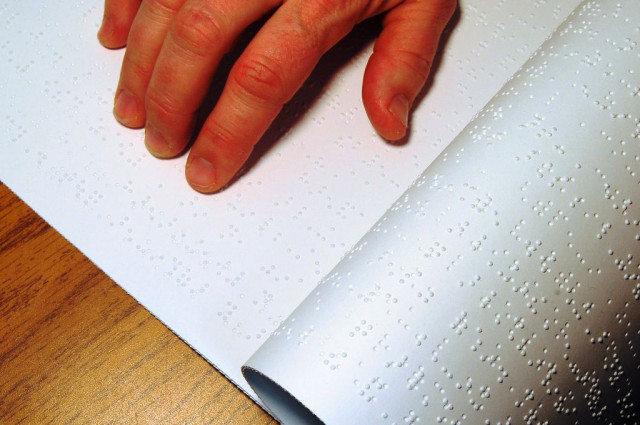World Sight Day: Giving the blind a chance to see
Experts feel Pakistan lags behind in motivating people to donate their eyes.

World Sight Day: Giving the blind a chance to see
The first time Shaista Javaid saw stars above the sky was when she was 13 years old.
Diagnosed with corneal blindness at a young age, she had been struggling with blindness since birth and was only able to see shadows.
“When I was a child, I could see a bit, but it gradually got worse. My school teachers recommended that I be sent to a school for the disabled,” Shaista recalls. “My father had lost all hope but then we got to know about eye donations.”
However, almost a decade ago she received treatment through a private charity organisation. Now married with four children, Shaista confidently speaks about how she was one of the lucky few who had her vision restored through the help of donors that provided her with eyes.
Eye donations … anyone?
Surprisingly, Shaista’s donors were not Pakistani. In fact, Pakistan has been importing the organ from Sri Lanka and Nepal due to an almost-zero existence of donors at home, experts say.
“The religious clerics have spread rumours that eye transplants are against Islamic principles of Shariah,” says Dr Ismatullah Chaudhry, an eye specialist and faculty member at the College of Ophthalmology and Allied Vision Sciences (COAVS) in Lahore. “We have an eye bank here but the only local donor we had was a few years ago – who was a convict on death row,” he adds.
Although they are fully equipped with state-of-the-art technology and highly trained professionals, it is all going to waste since no one wants to donate their eyes in Pakistan, he further says.
Dr Chaudhry explains that religious clerics have made people believe that if one gives away their eyes, they might be without them on the day of resurrection.
“Unless a change is brought in this mindset, we will continue to have cases of ‘avoidable’ blindness in Pakistan,” he says while stressing that without local donors, they may not be able to continue for long since demand for eyes is increasing globally.
COAVS, which is managed by the government, runs its eye healthcare system through charity and gives free treatment to patients.
Federal policy to tackle preventive blindness
“Today, roughly 1.5 million Pakistanis are blind, a majority of whom could have been prevented and some can still be cured,” says Dr Asad Aslam Khan, who heads the National Committee for Eye Healthcare – a government body that has been working on a national programme for the prevention and control of blindness in the country.
To further help the situation, he has also involved religious clerics to issue a fatwa in the defence of eye transplant, but for the culture to develop, he adds, there is a long way to go.
According to Vision 2020 – a global initiative for the elimination of avoidable blindness – a joint programme of the World Health Organization (WHO) and the International Agency for the Prevention of Blindness (IAPB) about 284 million people are visually impaired worldwide.
Focusing on Pakistan, it says two-thirds of cases of blindness in Pakistan are found in women – more than 80% of which are curable if treated.
Experts feel that eye donors are scarce in Pakistan not only because of faith-related misconceptions but also because of emotional attachment.
Many times, the family of a prospective donor refuses, and since the procedure needs to be done within six hours of death, it usually does not go through.
According to Shaista, many of her family members did not understand what eye donation was. “I believe it is the one last good deed that people should do before leaving this world,” she said, adding, “We can give the blind a chance to see again.”
Published in The Express Tribune, October 13th, 2011.



















COMMENTS
Comments are moderated and generally will be posted if they are on-topic and not abusive.
For more information, please see our Comments FAQ